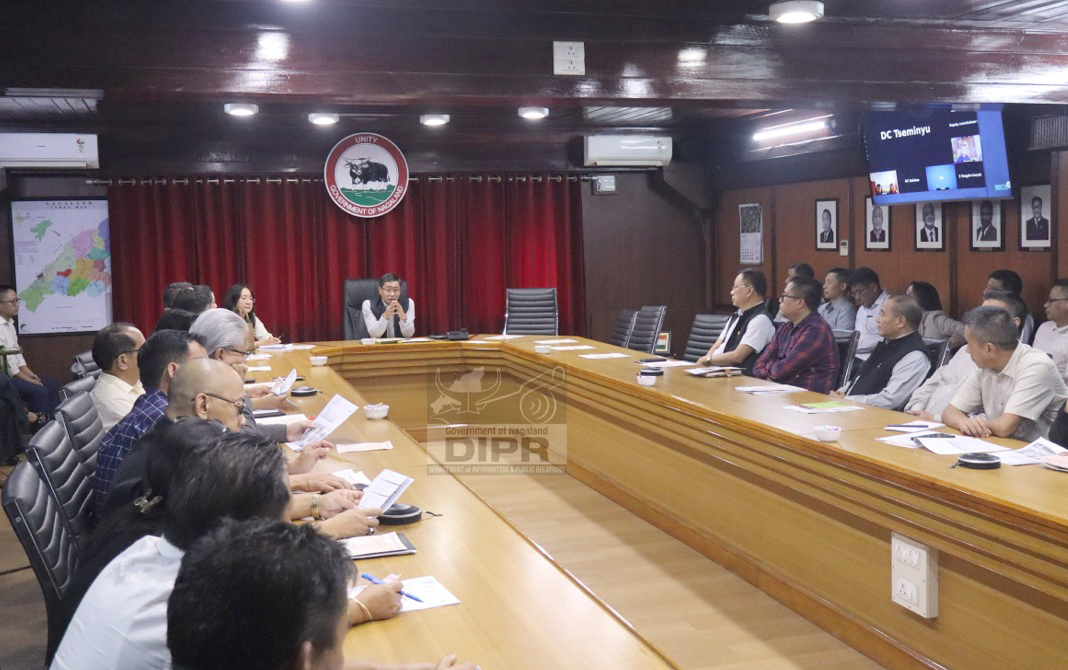Nagaland Chief Secretary, Sentiyanger Imchen, IAS on Wednesday described the Aadi Karmayogi Abhiyan (AKA) as a “game-changer initiative,” calling it not just a scheme but a grassroots governance revolution aimed at empowering tribal communities through leadership development and responsive governance.
Chairing the State Level Orientation Programme of AKA at the Chief Secretary’s Conference Hall, Kohima, Imchen highlighted that by bringing together multiple departments and delivering essential services, the initiative seeks to benefit the common man, particularly those in villages. He remarked that the programme has the potential to transform the lives of millions of people in tribal communities, with long-term impact.
Underscoring the collaborative approach through convergence, he said it can bridge gaps in service delivery and promote inclusive development. “The programme focuses on building leadership at the rural level while providing tribal villages with essential assets and services. This holistic approach can empower local communities and bring sustainable social change,” he said.
The Chief Secretary also reminded all Deputy Commissioners to accord priority to the programme and ensure its effective implementation across districts.
According to a DIPR report, the Aadi Karmayogi Abhiyan is a nationwide movement launched by the Ministry of Tribal Affairs, Government of India, with the objective of empowering tribal communities and strengthening responsive governance. The initiative seeks to create a cadre of two million grassroots change leaders across one lakh tribal villages, bridging the last-mile delivery gap and promoting inclusive development.
Presenting an overview, Secretary, Tribal Affairs Department, Angelina Tajen, emphasized that AKA is a people-centric approach designed to foster inclusive growth, social change, and sustainable development in tribal areas. She explained that the programme will involve convergence among 15 departments—including Tribal Affairs, Rural Development, Health, and Education—covering 608 villages across Nagaland for saturation coverage of tribal families and villages.
Download Nagaland Tribune app on Google Play

Tajen further outlined the structure of the initiative. She disclosed that at the State level the Tribal Affairs Department will be the nodal department, with state master trainers and nodal officers from key line departments whereas in the District-level, the Deputy Commissioners will spearhead the program, with district master trainers and involvement of all 15 line departments. At the Block level officers and block master trainers will be involved with CSOs and NGOs participating in the progress. At the village-level one day workshops will be held to sensitize villagers with the involvement of CSOs, NGOs and village councils, she added.
Deputy Director, Health & Family Welfare, Dr. Thomas Keppen described the Abhiyan as a “grassroots governance revolution” that encourages people’s participation and ownership in governance. “By focusing on convergence and ownership, the movement seeks to create a more responsive and effective governance system that truly serves the people,” he noted.
Deputy Commissioners from various districts also joined the programme via video conference, sharing insights and concerns about district-level implementation. Line departments presented their progress updates and sought clarifications on the execution of the scheme.

